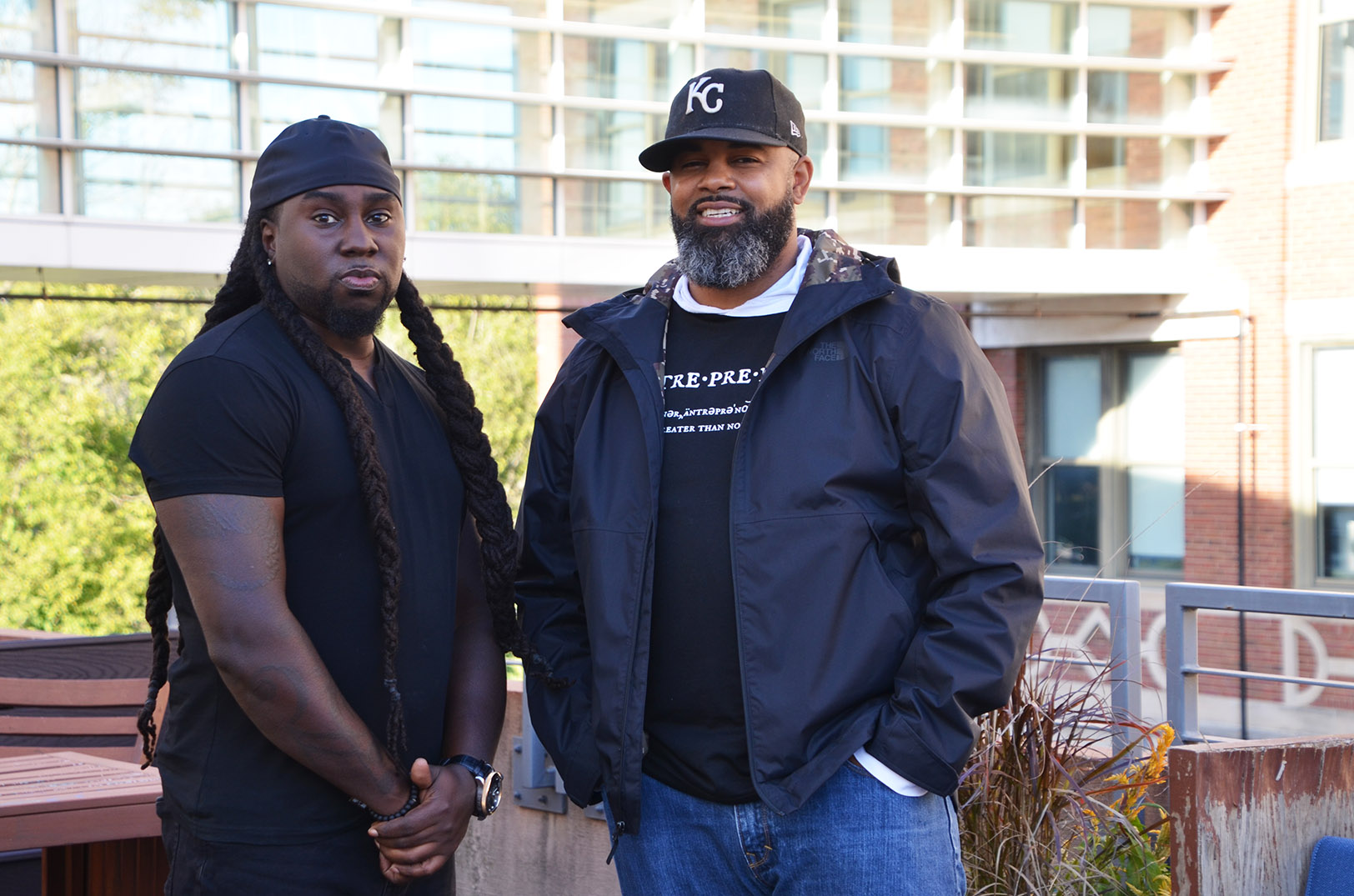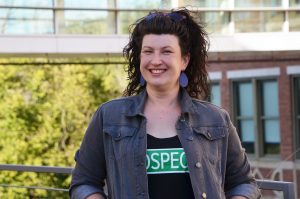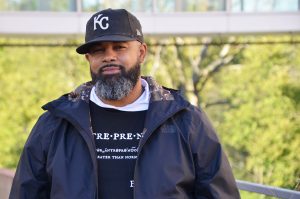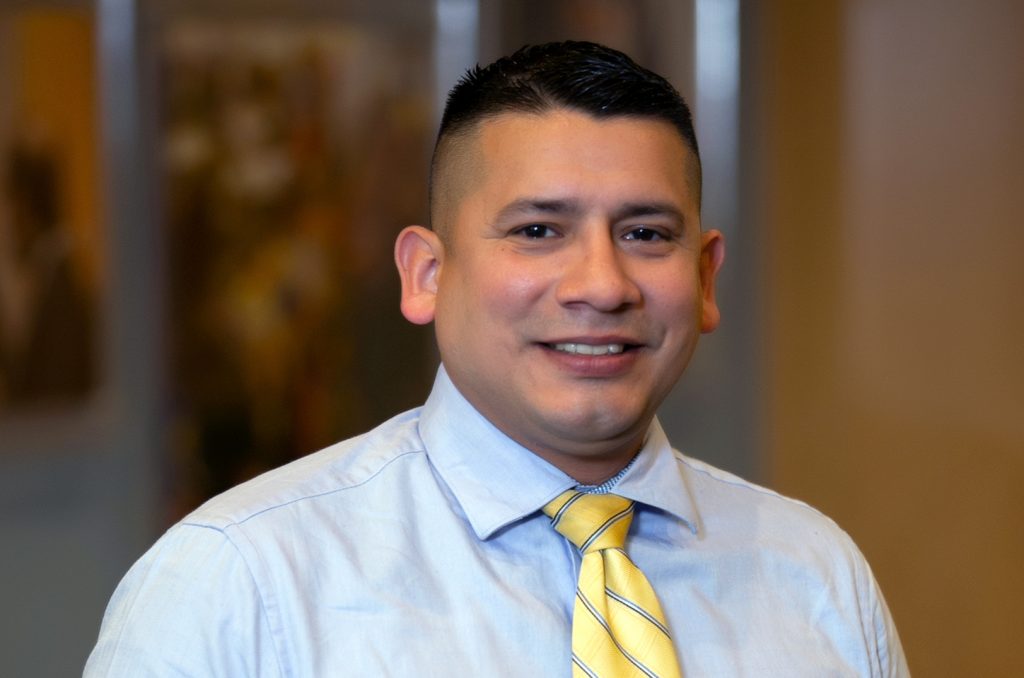It’s obvious where Kansas City’s underserved areas for entrepreneurial and community resources fall — the east side, said Morgan Perry, noting that 22 chambers of commerce serve other portions of Jackson County.
“But for Troost, for Prospect — where are the resources on the ground for them? They are no one’s focus,” said Perry, who serves as the Business Outreach Specialist for the Mid-Continent Public Library. “If we’re going to fix this underserved community problem, that means somebody’s going to have to build something for them.”
And somebody is.
Forward Cities — a national nonprofit organization that works to build more equitable entrepreneurial ecosystems in regions across the United States — arrived to Kansas City in 2018 to form an ESHIP Community that would directly focus on the Troost/Prospect avenues area, KCMO and the Central/Minnesota avenues in KCK.
Click here to learn more about Forward City’s ESHIP community in Kansas City.
The nonprofit recently partnered with the Porter House KC and the Mid-Continent Public Library for its second cohort of the Forward KC Mentorship program, aimed at serving small and arispiring businesses in-and-around the Troost and Prospect neighborhoods.
The 16-week intensive program, starting Monday, Oct. 5, follows a Forward Cities’ survey to discover the greatest need for the two regions of Kansas City.
“On the Kansas side, it was determined that there was a need for more network building, along with bilingual educational resources,” explained Daniel Smith, co-founder and CEO of the Porter House KC. “On the Missouri side, there was a greater need for mentorship.”
Perry and Smith are part of Forward Cities ESHIP Council, along with 30 other community leaders. The role of the council is to identify which communities to work in, identify barriers and then develop pilot project parameters, according to the ESHIP Council.
Forward Cities went door-to-door to personally meet and survey the small business owners in these respective communities. Gabe Muñoz, who serves as the local director for Forward Cities ESHIP Kansas City, said that although there were not many businesses in those areas, surveying took about a month to accommodate for the various owners’ needs.
“These business owners were busy running their business, taking orders, cooking — all while trying to complete the survey,” Muñoz said. “There were only about 24-25 small businesses on the Missouri-side in our target neighborhoods.”
“We found that in Missouri, 38 percent of small businesses want to be in a mentorship relationship, but don’t know how to make it happen,” he continued. “And 56 percent of businesses said they had an interest in a mentorship program.”
Intentional pairings
Because of the smaller number of businesses, it was the perfect opportunity to have personalized one-on-one mentorship, leaders of the effort said.
“When mentors and mentees signed up for the programs, we actually had them do a big personality assessment in order to pair them up as best as possible,” Smith said.
“By using that personality to test, we can really ask, ‘Who communicates in the same way?’” Perry added. “Then, we can set them up for the best chance of success.”
The second cohort has 20 pairs of mentors and mentees, significantly increasing from the first cohort of six back in March.
Daniel Smith and Morgan Perry were featured in Startland News’ KCultivators series. Read Smith’s feature here and Perry’s feature here.
Getting online
The Forward KC Mentorship program has various intended outcomes, such as reducing stress and anxiety, inspiring motivation and meeting the small businesses’ most urgent needs, according to the Porter House KC’s website.
A recurring need Perry, Smith and Muñoz have seen emerge greatly since the COVID-19 pandemic: the need for businesses to get online.
“We still have so many small businesses that are struggling to get online and create that digital marketing presence; it’s very difficult,” Muñoz noted. “Just because you build a website or create a social media account, it doesn’t automatically mean that people know who you are.”
“Also, sometimes, you’re just so used to doing things a certain way for so long that they become a habit,” he continued. “So having an outside person come in and provide some fresh perspectives, I think will be the biggest value provided from this mentorship program.”
More than mentorship
Along with new perspectives, Muñoz said he sees relationship building as a key takeaway.
“It’s more than just mentorship, it’s really about creating a friendship,” he said. “It’s important to have someone to lean on during these times, as well as to help them get plugged into the existing entrepreneurial ecosystem. But first, you have got to build trust with the small business owners, so then they are more apt to come in and receive help.”
Perry views the program as a way to fill in the gaps in Kansas City’s entrepreneurial ecosystem, she said.
“There is so much untapped potential here, so much,” Perry emphasized. “It’s time to start serving those people.”
Although there are other mentorship programs in Kansas City, Forward KC is unique in that it is for businesses that make less than $200,000 in annual revenue, Smith noted.
“[Programs] tend to focus most of the attention and resources on the top 1 percent of Kansas City businesses,” Smith said. “But good economic development means everybody.
“And to be honest with you, there are other programs, and there are other mentorships, but they don’t do it like we do,” he continued. “We are targeting these specific folk, and we are putting together a full-fledged, 16-week mentorship program for free. It doesn’t work that way. This is not normal. But I challenge others to do it. It’s good.”









































